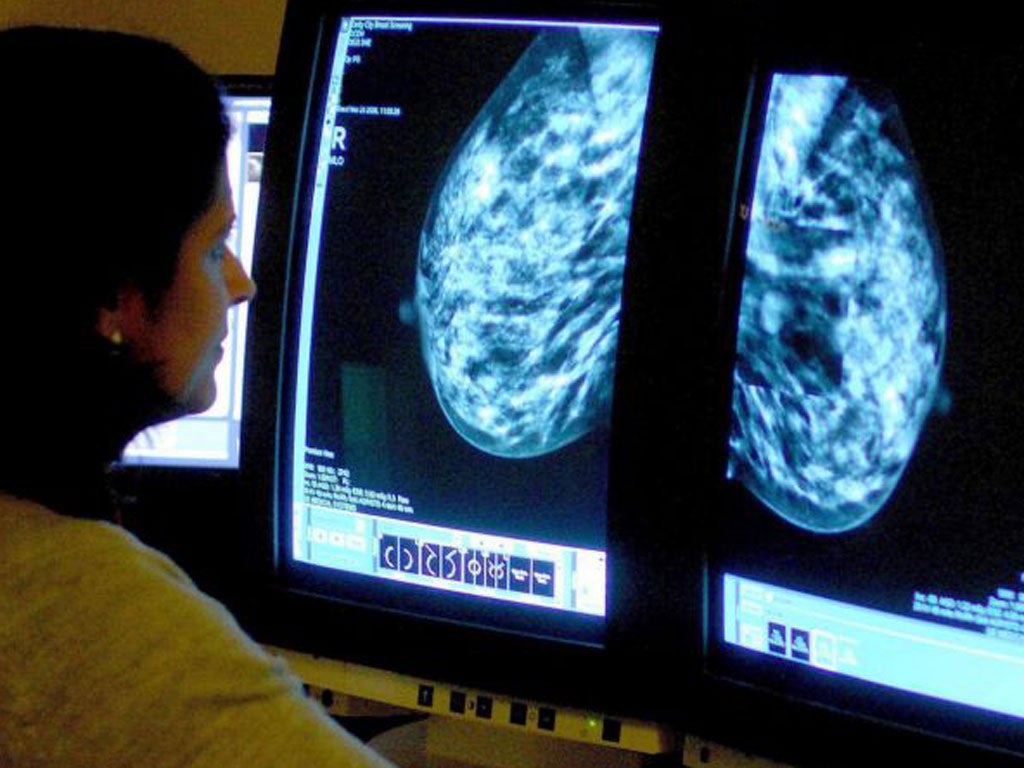Black and Asian people waiting longer for cancer diagnosis, new study finds
In the most extreme cases, patients from minority groups waited an extra six weeks for a diagnosis than white people

Your support helps us to tell the story
From reproductive rights to climate change to Big Tech, The Independent is on the ground when the story is developing. Whether it's investigating the financials of Elon Musk's pro-Trump PAC or producing our latest documentary, 'The A Word', which shines a light on the American women fighting for reproductive rights, we know how important it is to parse out the facts from the messaging.
At such a critical moment in US history, we need reporters on the ground. Your donation allows us to keep sending journalists to speak to both sides of the story.
The Independent is trusted by Americans across the entire political spectrum. And unlike many other quality news outlets, we choose not to lock Americans out of our reporting and analysis with paywalls. We believe quality journalism should be available to everyone, paid for by those who can afford it.
Your support makes all the difference.Black and Asian people are waiting up to six weeks longer for a cancer diagnosis than white people, new analysis has found.
New research carried out by the University of Exeter, supported by Cancer Research UK and reported in The Guardian, looked at the waiting times for seven different cancers.
The study analysed over 126,000 cases over a decade and found the average diagnosis time for white people was 55 days. Black people were found to be waiting 61 days (11 per cent longer), while Asian people averaged waits of 60 days (9% longer) from when they first saw their GP.
Overall, the research found minority groups waited longer to be diagnosed with a number of cancers including breast, prostate and colorectal cancers.
One of the most alarming findings was the disparity in the diagnosis of cancers affecting the oesophagus or stomach, which found Asian people waited on average 100 days - more than six weeks longer than the 53 days for white patients.
The review does not provide reasons for why the waiting times differ for different races.
Jabeer Butt, chief executive of Race Equality Foundation, told the Guardian the findings were “deeply worrying, with potential life-altering consequences for the health of black and Asian people”.
“We urgently need to address these underlying factors holding black and Asian patients back from getting a fair chance when it comes to fighting cancer.”
The average longest waiting time for the diagnosis of breast cancer in white women was found to be 43 days, compared to 56 days for Asian people, and 73 days for Black people.
The researchers concluded that while efforts to improve awareness of the signs and symptoms of breast cancer and the need for screening, “this finding suggests a need for further exploration of Black women’s pathways to the diagnosis of symptomatic breast cancer”.
Cancer affecting the prostate was found to take longer to diagnose in Black and Asian men, compared to white men, with an average of seven and 13 days, respectively.
The researchers attributed this to inequalities in primary care services, warning that GPs’ interpretations of symptoms could be leading to delays. It comes after the development of a new genetic blood test aimed at improving the early detection of prostate cancer in Black men, who are twice as likely to develop and die from the disease compared to white men.
Colorectal cancers were also found to have unequal diagnosis times, with Black people waiting an average of 14 days longer, and Asian people waiting 24 days when compared to white people.
Further analysis carried out by the Guardian also found a 37 per cent increase on average in waiting times for diagnosing myeloma - blood cancer - in Black and Asian people.
Lead researcher, Tanimola Martins, said highlighting the disparities “will help to improve trust and care experiences among ethnic minority groups”.
“While further studies are necessary, this study’s findings enhance our understanding and will help focus interventions to minimise ethnic inequalities.”
Mr Martins added that more needed to be done to improve the uptake of cancer screening among minority groups.
“We urgently need to understand why this is the case for black and Asian groups,” he said.
The study comes as the government is developing a 10-Year Cancer Plan aimed at improving and treating cancer, including priorities for “tackling disparities and inequalities”.
Following an extension of its consultation on the plan, Sajid Javid, then-Health and Social Care Secretary said: “My father died from cancer and wished he had taken the early signs much more seriously.
“But unfortunately for him, like so many people from ethnic minority communities, it was detected too late.
“We are extending the cancer call for evidence to inform our 10-year Cancer Plan to better understand why people are not coming forward.”




Join our commenting forum
Join thought-provoking conversations, follow other Independent readers and see their replies
Comments